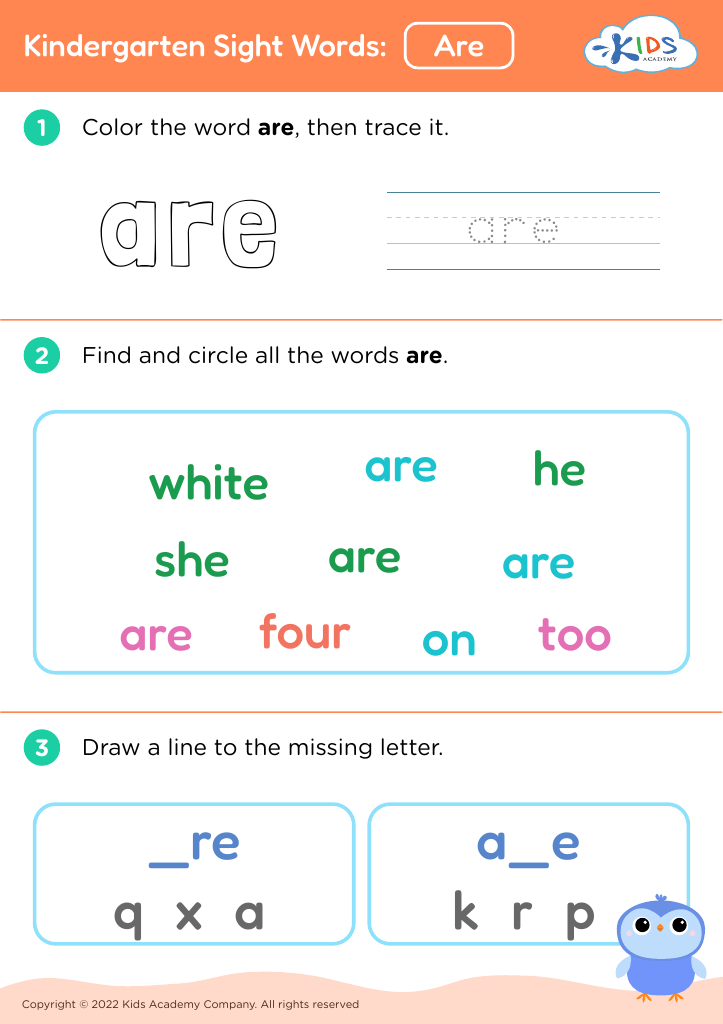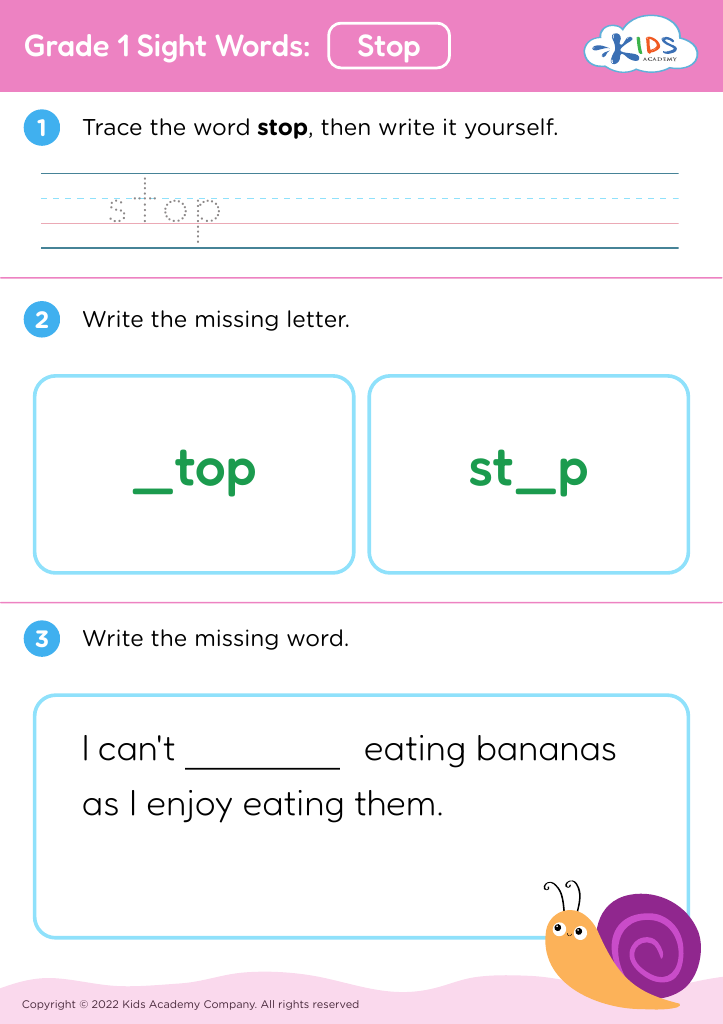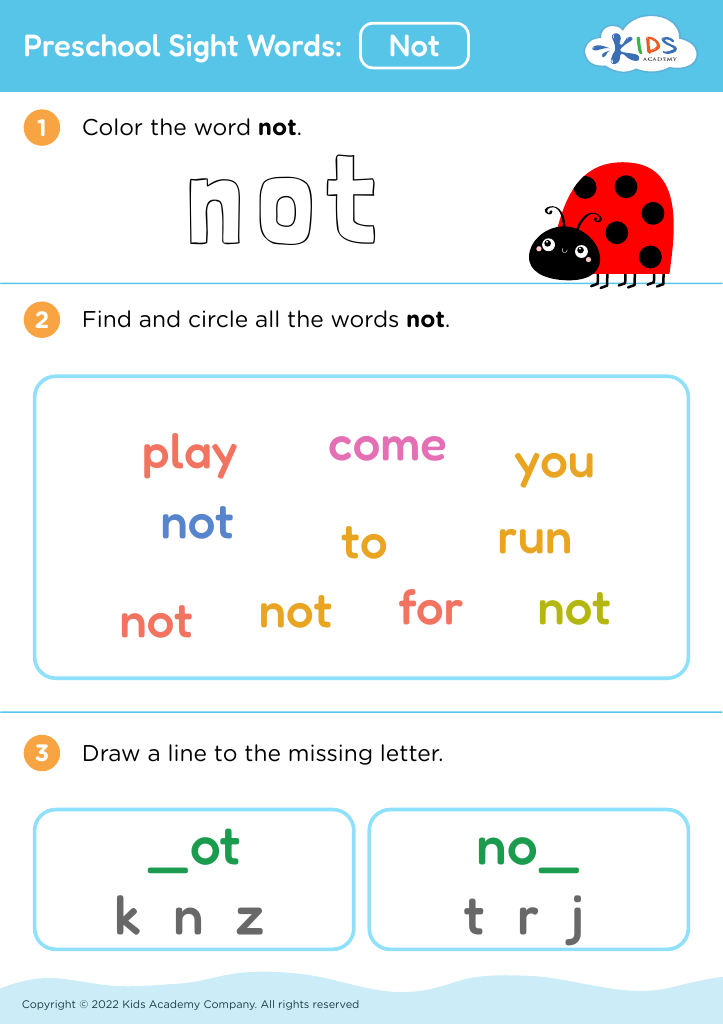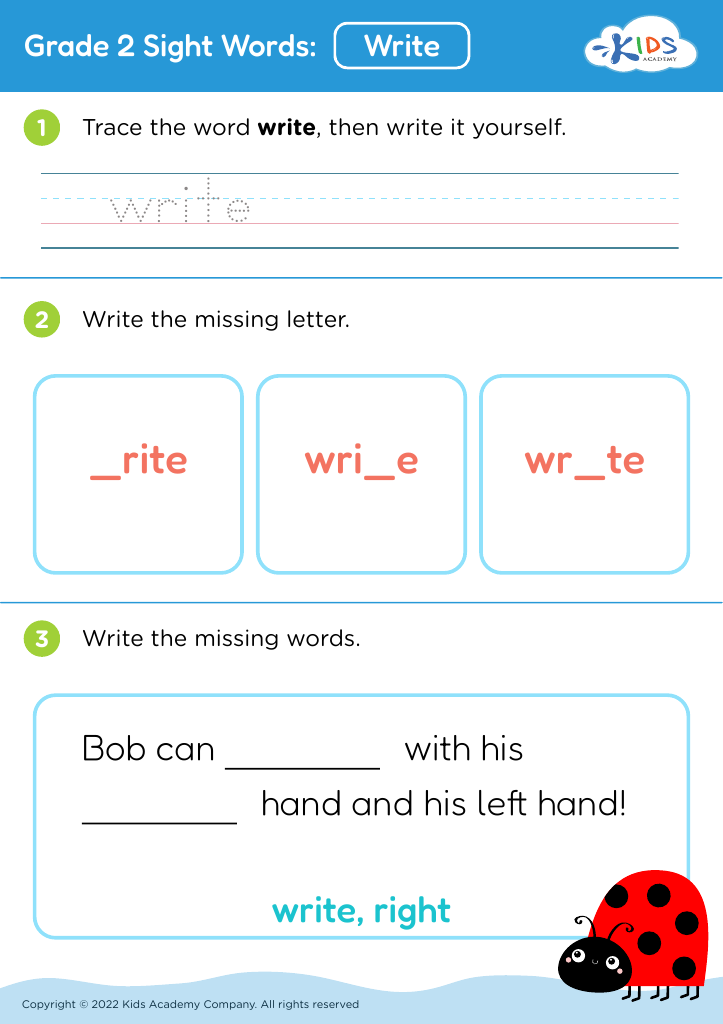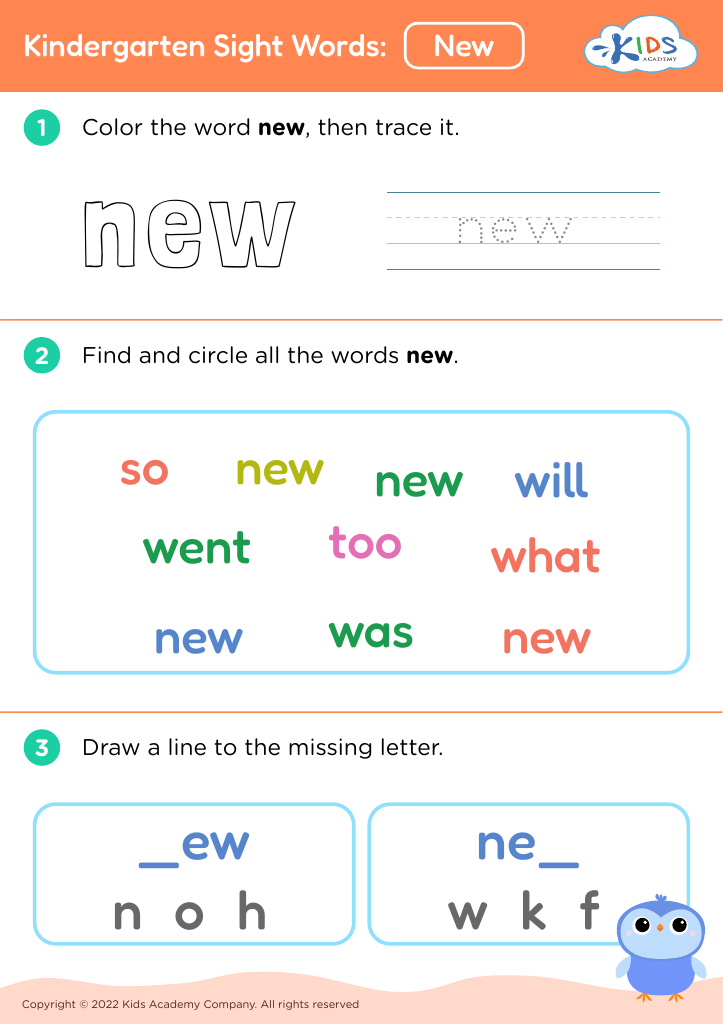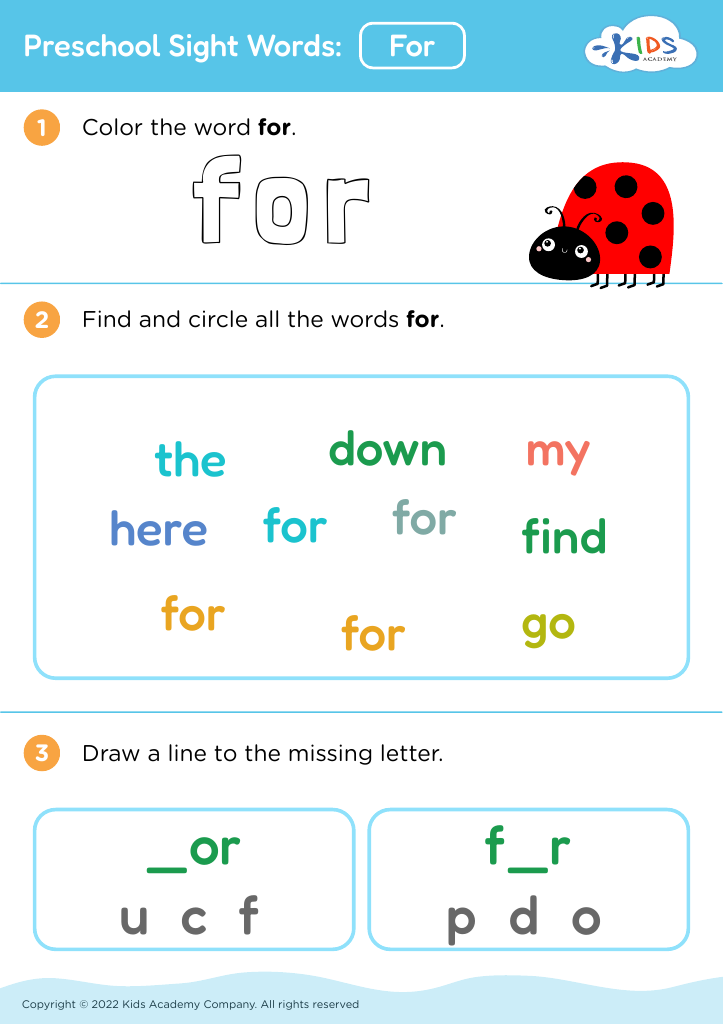Basic Addition Skills Reading Worksheets for Ages 3-7
8 filtered results
-
From - To
Discover the perfect resource for nurturing early math skills with our "Basic Addition Skills Reading Worksheets for Ages 3-7." Designed to make learning fun and engaging, these worksheets combine vibrant illustrations with simple addition problems to captivate young learners. Each worksheet aims to boost confidence and improve basic math proficiency, setting a solid foundation for future education. Ideal for both classroom use and at-home practice, these activities encourage kiddos to enjoy learning through play and repetition. Equip your child with the essential skills needed for academic success by exploring our well-crafted addition worksheets today. Suitable for all learning styles!
Basic addition skills are foundational to a child's overall academic success and cognitive development. For children ages 3-7, introducing and reinforcing these skills is crucial, as it sets the stage for more complex mathematical concepts and problem-solving abilities later on. At this age, children are highly receptive to new information and are developing critical thinking skills. By mastering basic addition, they can foster a love for learning and confidence in tackling new challenges.
Parents and teachers should care about developing these skills because math competence is not just essential for future academic pursuits, but also for everyday life. Proficiency in addition aids children in understanding patterns, structure, and logic, which are applicable in various real-world situations such as counting money, telling time, and measuring ingredients for a recipe.
Furthermore, early proficiency in addition positively impacts a child's confidence and academic self-esteem. Children who struggle with math often face anxiety and discouragement, which can deter them from engaging with the subject in the future. Therefore, ensuring that young learners have a strong grasp of basic addition skills can help prevent these issues and promote a positive, lifelong relationship with mathematics.
Incorporating fun, engaging, and age-appropriate activities to teach basic addition can make a significant difference in a child's ability to succeed academically and develop critical life skills.
